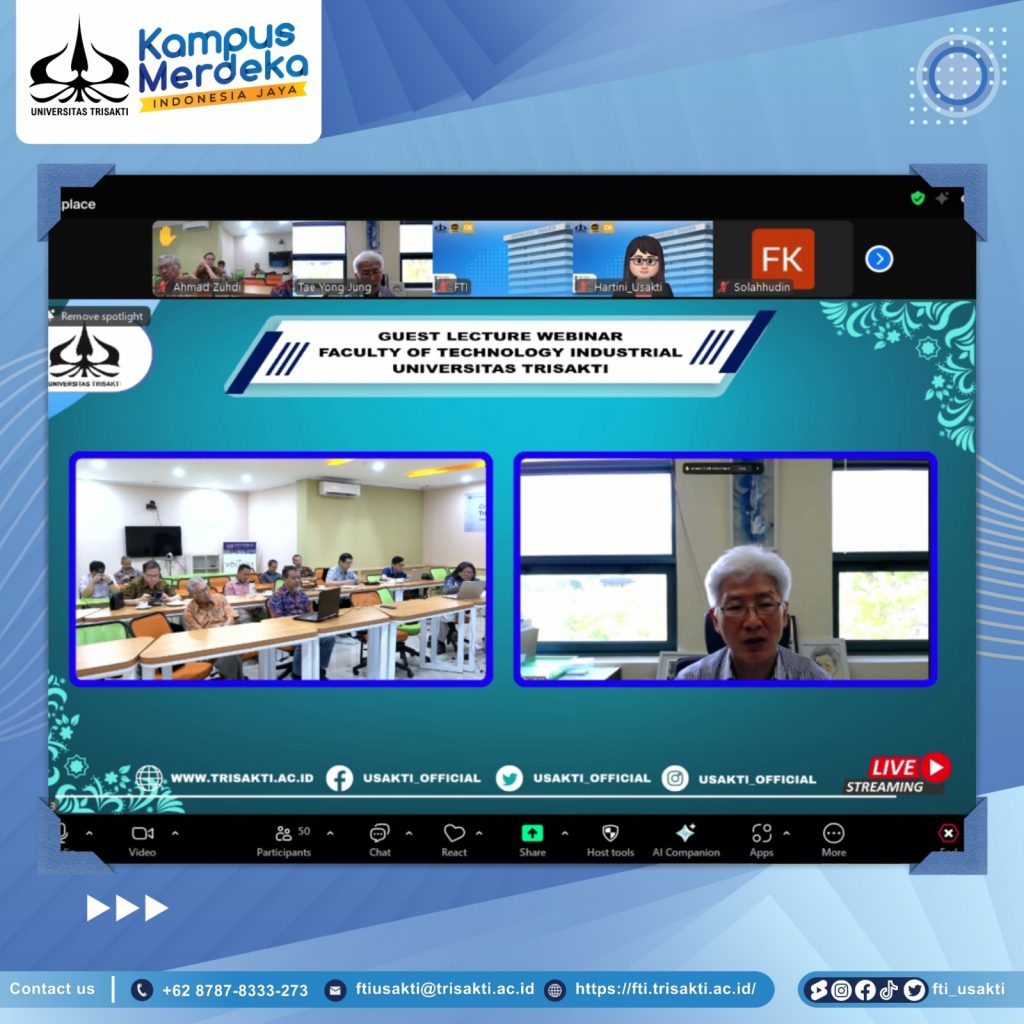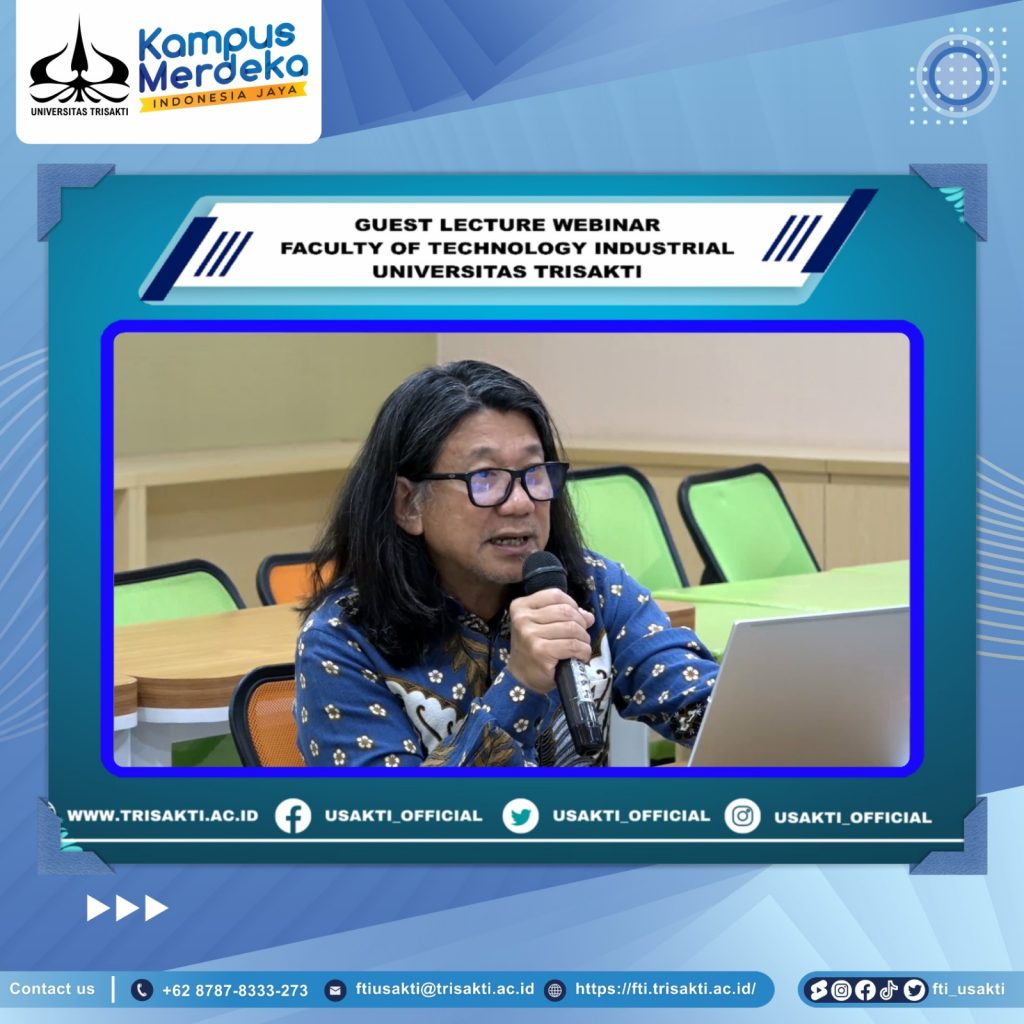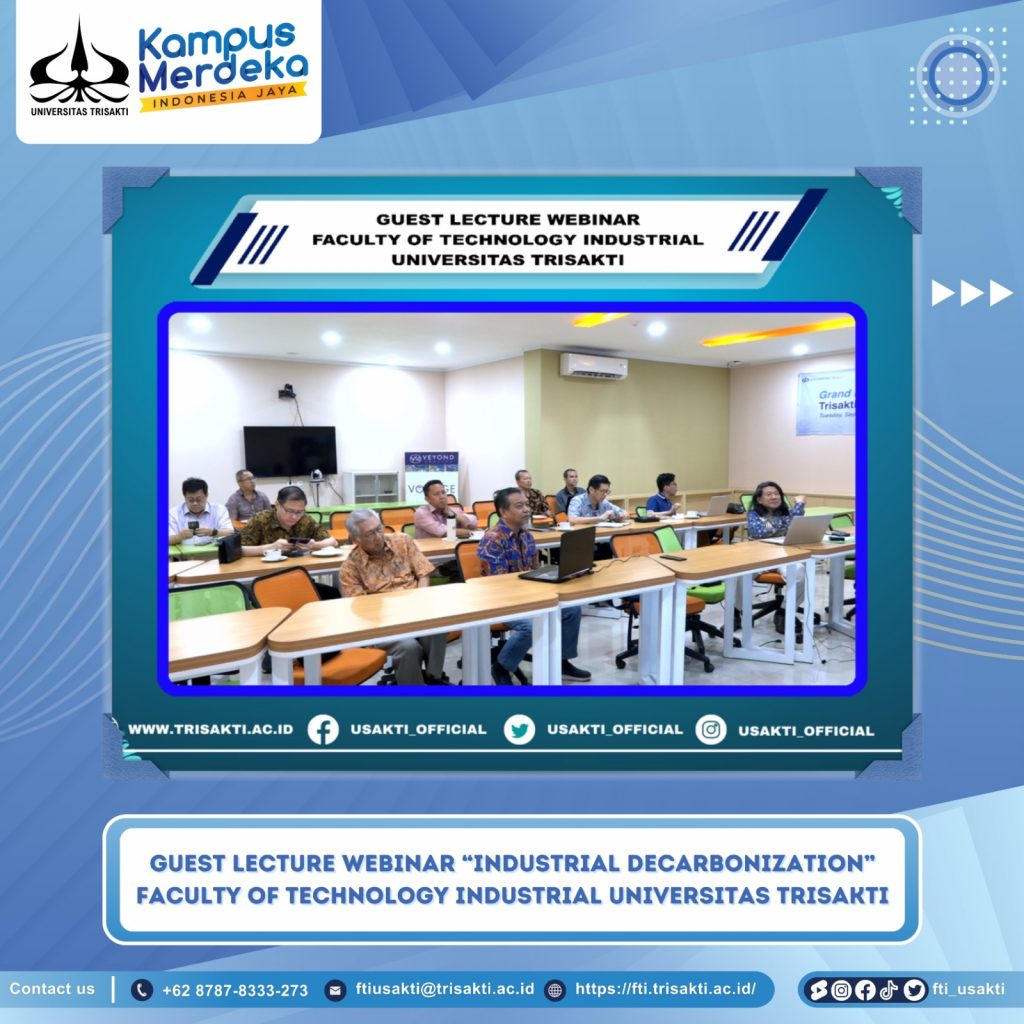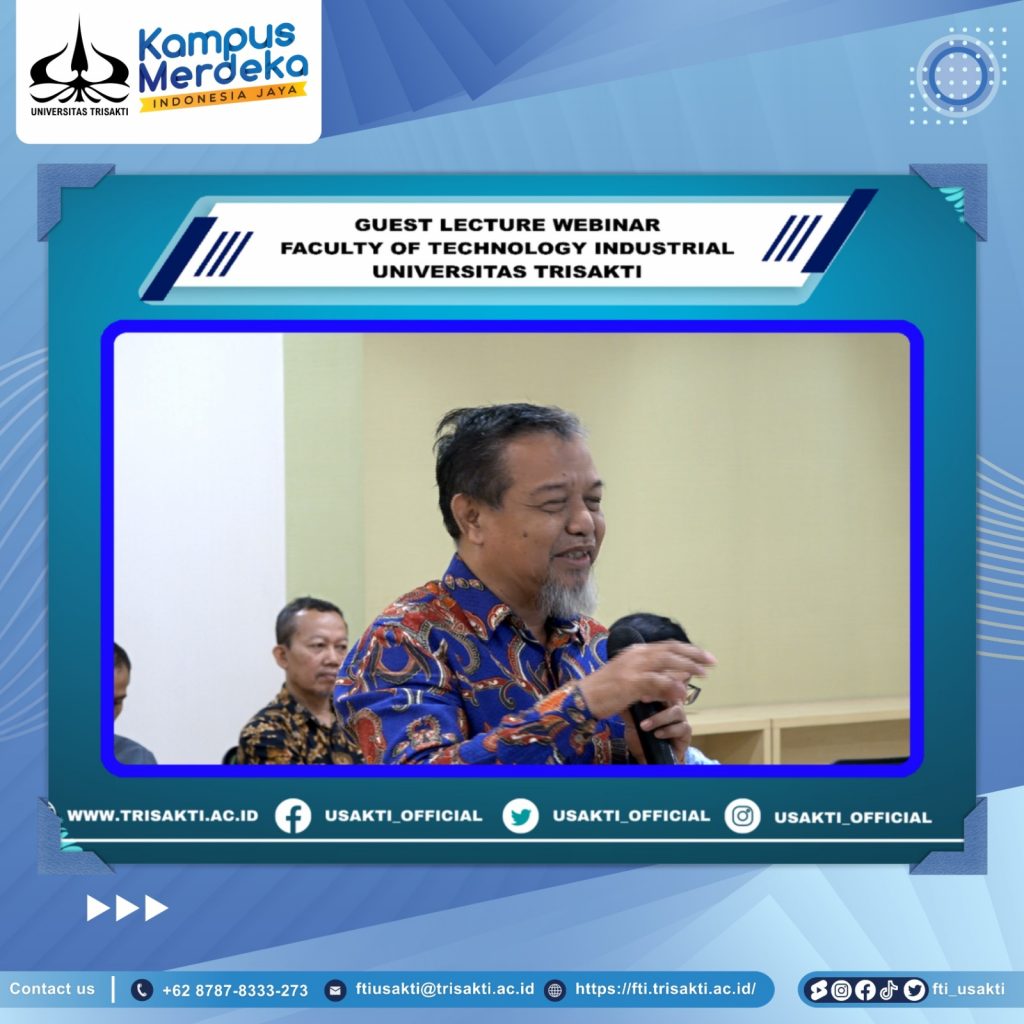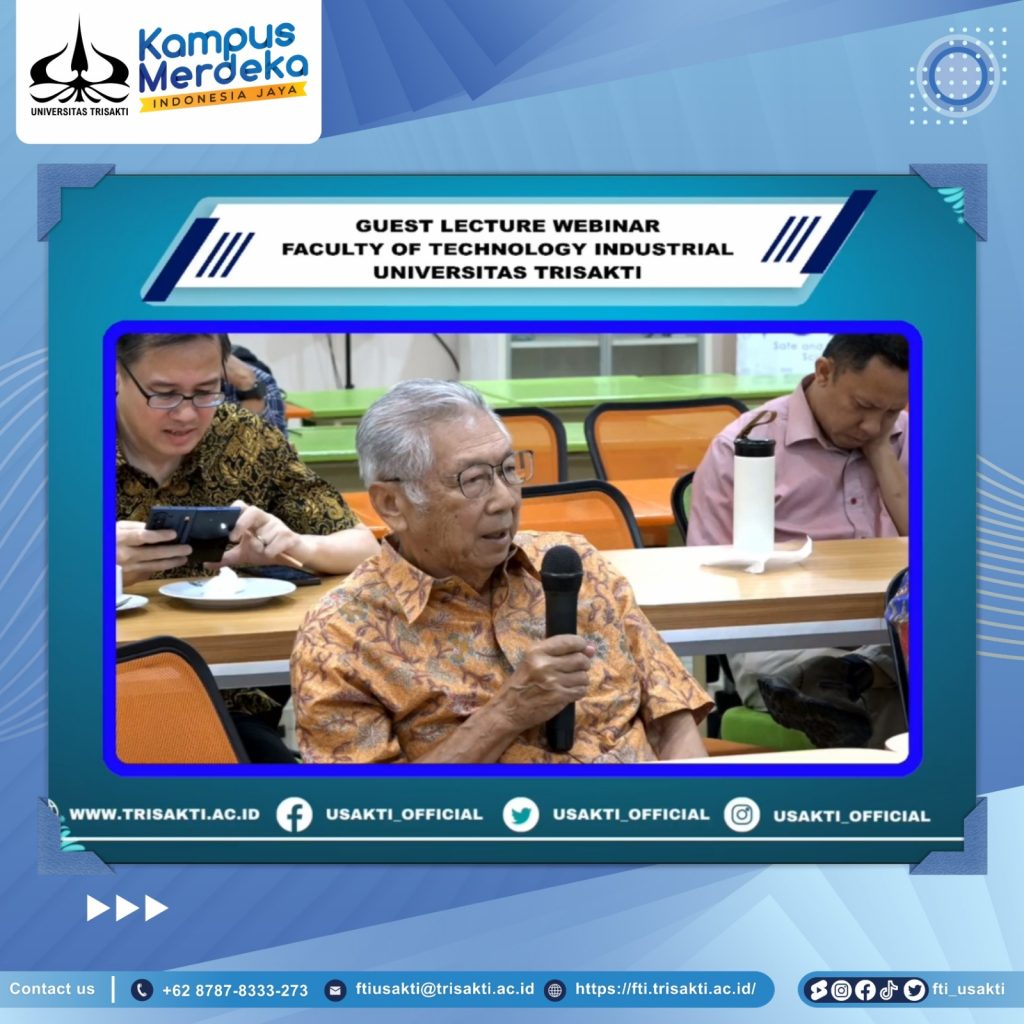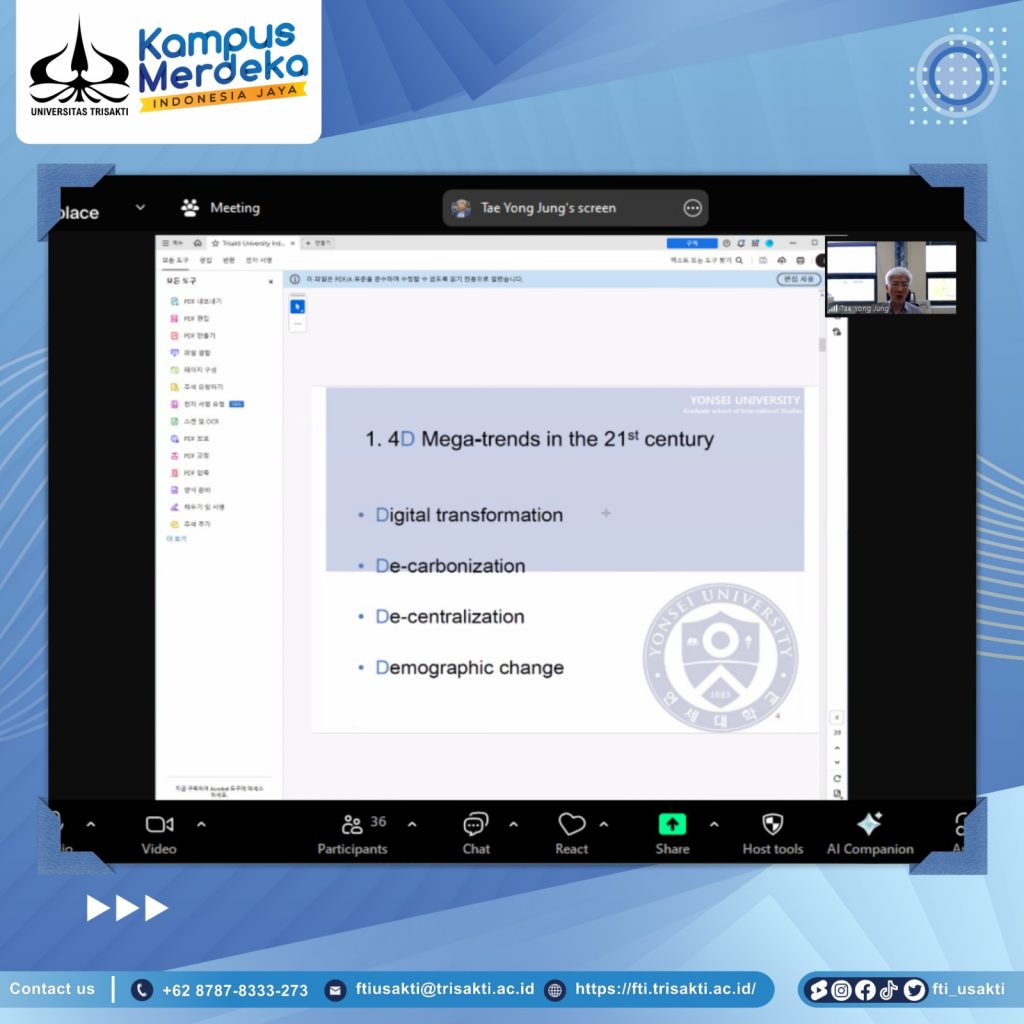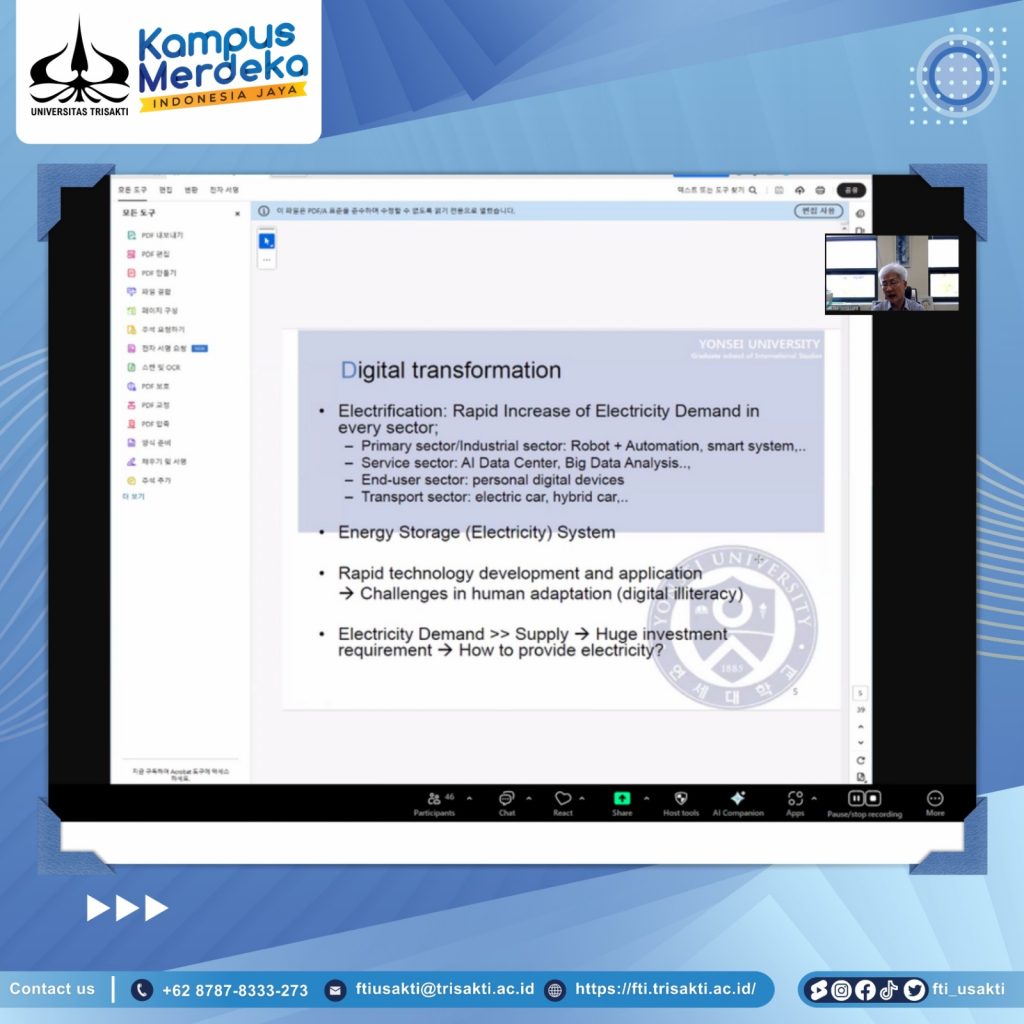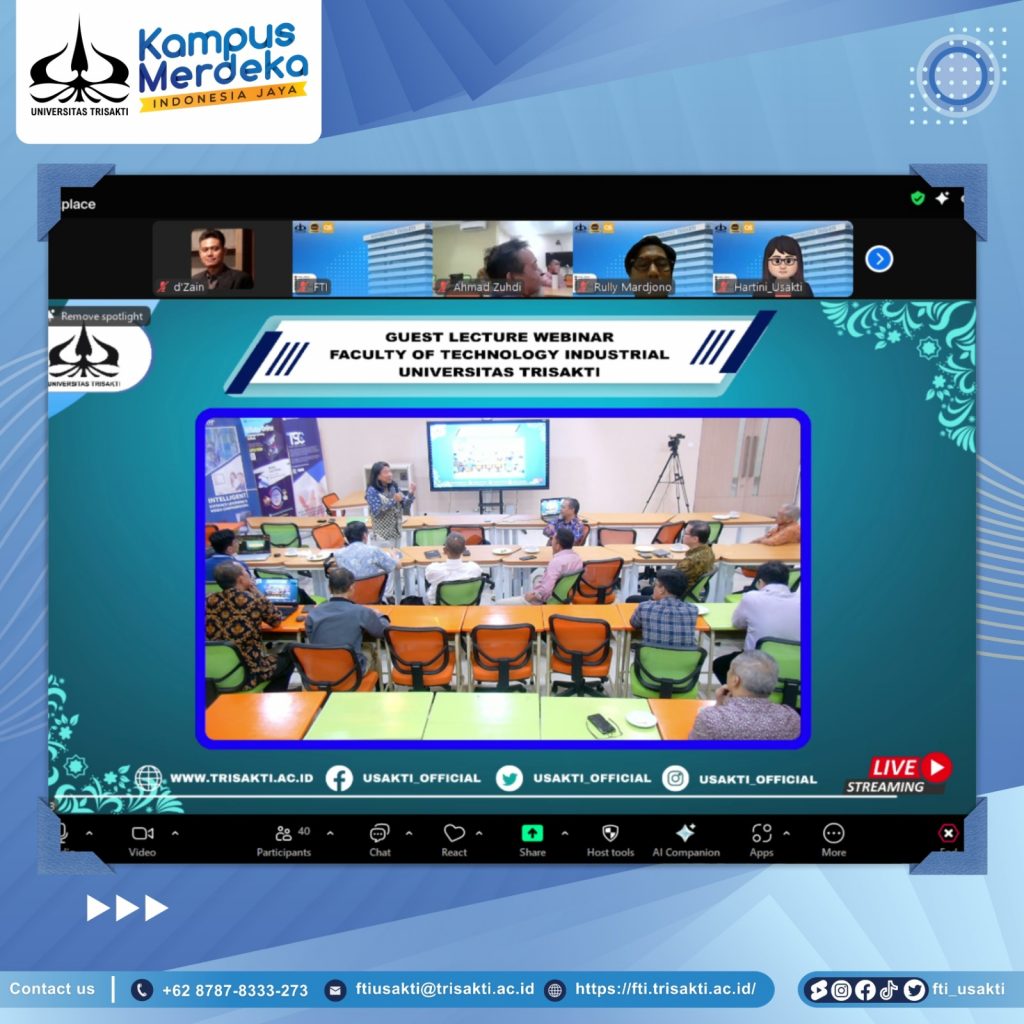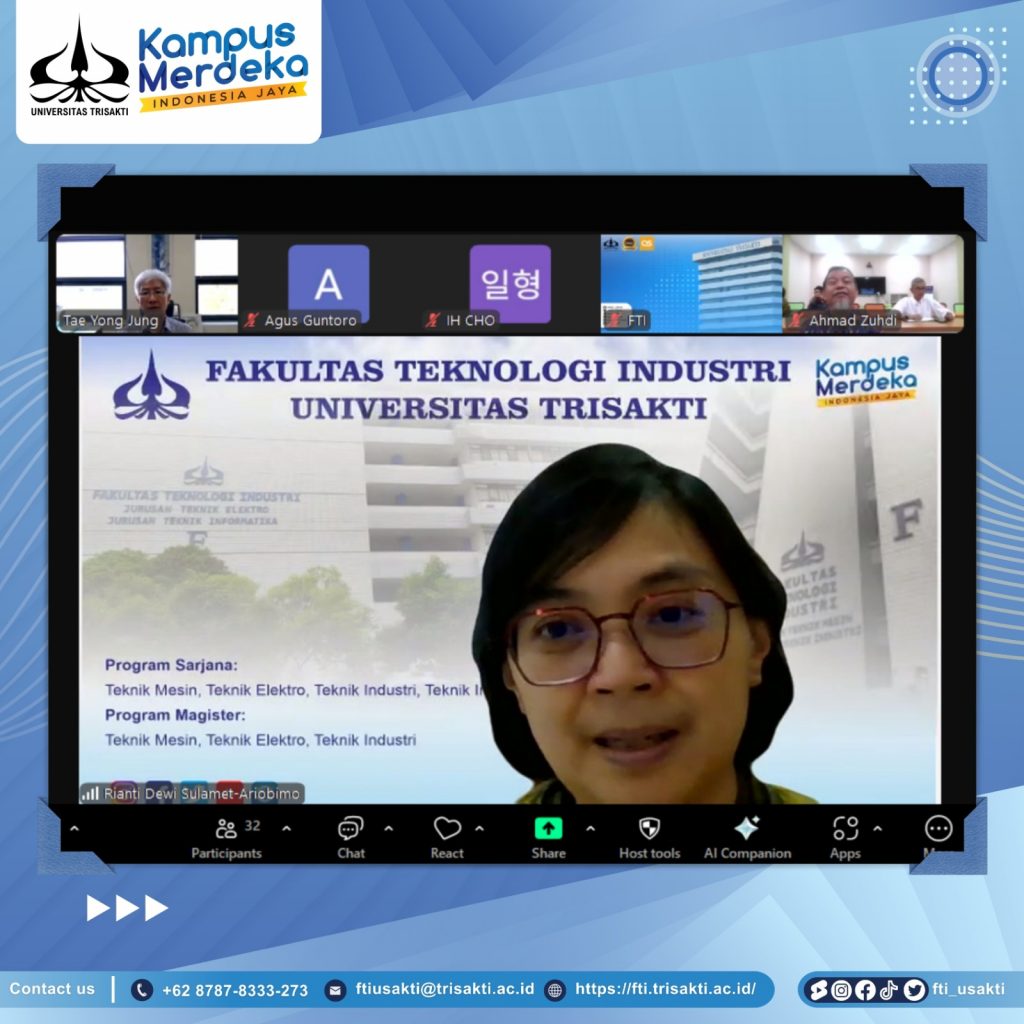Contact Us
- JL. Kyai Tapa No. 1 Grogol
- Jakarta Barat, Indonesia
- Phone:
- (62-21) 566 3232
- Whatsapp:
- (+62) 882 194 856 74
- (+62) 877 707 077 03
- Fax: (62-21) 564 4270
- Email: humas@trisakti.ac.id
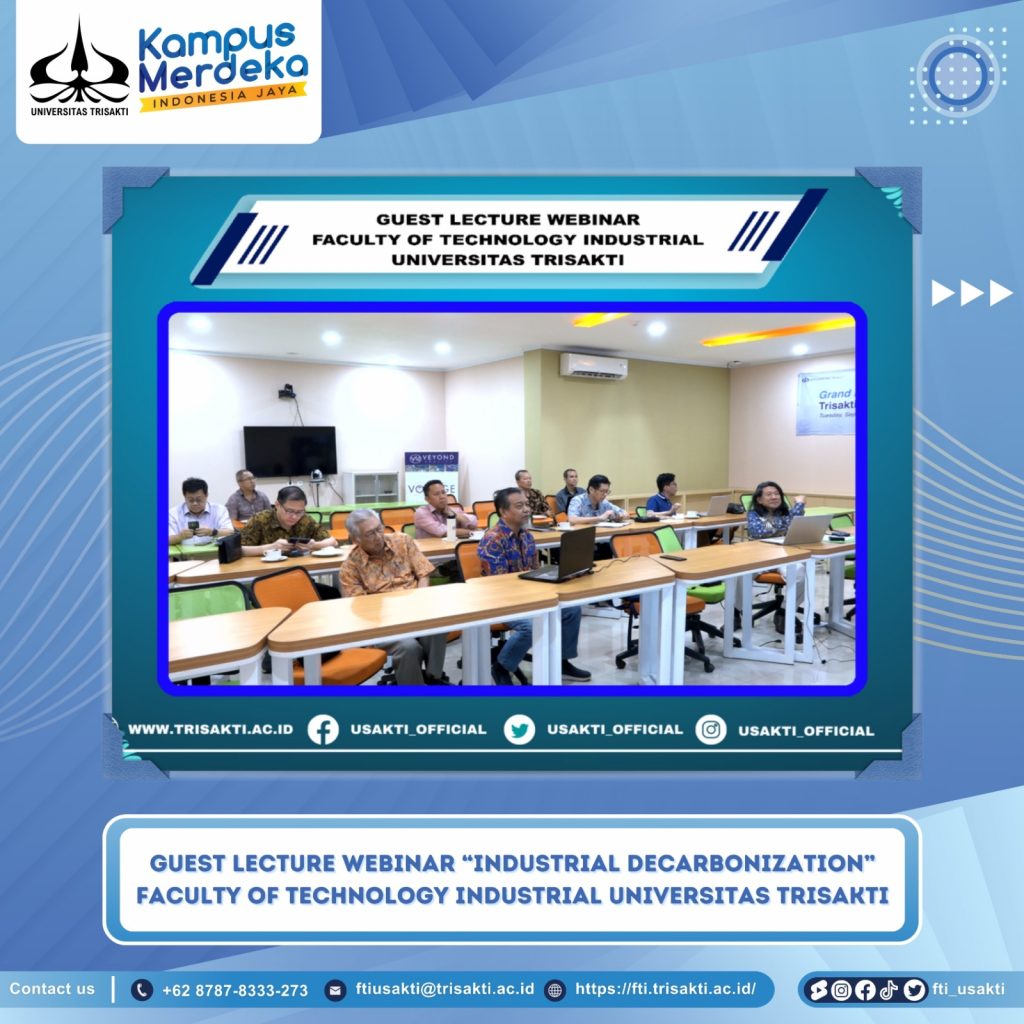
In an effort to find solutions to the high carbon emissions from the industrial sector in Indonesia, FTI Usakti in collaboration with Karbon Korea has held a scientific discussion by inviting academician Prof. Tae Yong Jung, Professor of Sustainable Development Program at Ban Ki Moon Foundation for a Better Future Yonsei University Seoul South Korea.
This activity was held on Monday, April 28, 2025, at 13:00 – 15:00, held in a hybrid manner (offline in the TSC room, Heri Hartanto building, 7th floor and online with the Zoom channel) and as moderator Ir. Agus Guntoro, MS PhD, Director of the Cultural Institute and Usakti’s Office of International Affairs and Cooperation. The event, which was opened by the Dean of FTI Usakti Prof. Dr. Ir. Rianti Dewi Sulamet-Ariobimo, ST, M.Eng, IPM. was attended by 80 active participants, from academics and professionals.
In his presentation, Prof. Jung explained that the issue of Decarbonization is one of the 4 main problems in the 21st century, in addition to digital transformation, decentralization and demographic change. Decarbonization is an effort to reduce or eliminate greenhouse gas (GHG) and carbon dioxide (CO2) emissions from the atmosphere, resulting from climate change, instability of the global order (both due to warfare, energy security, and reducing dependence on fossil energy sources), and demands for a more environmentally friendly economy. The South Korean government has set Korea’s 2030 NDC Target policy, net Zero Carbon Emission.
The speaker’s presentation was followed by a discussion of several issues raised by 4 participants, namely 2 from Usakti academics and 2 practitioners from outside Usakti. It is hoped that this discussion can provide sufficient insight and information to increase stakeholder awareness of government programs in succeeding Decarbonization towards Indonesia net zero emission 2060 through synergistic international cooperation in economic development and decarbonization.
